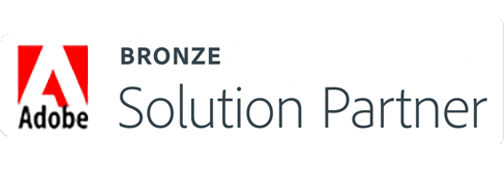SAP Business One is a comprehensive enterprise resource planning (ERP) solution. The software is designed to help small and medium-sized businesses streamline their operations and improve efficiency. It offers a range of features, including accounting and financial management, sales and customer support, purchasing and inventory management, production, and project management.
The solution can be tailored to meet specific business needs, making it an ideal choice for businesses of all sizes and industries. This blog will take a closer look at SAP Business One and explore its key features. We will also discuss the benefits of using SAP Business One, as well as the process of implementing and customising the solution to meet specific business needs.
Key Features of SAP Business One
Accounting and Financial Management
SAP Business One offers a comprehensive set of accounting and financial management tools. The list includes general ledger, payable and receivable accounts, bank management tools, and budgeting and forecasting applications. This helps businesses to keep their financial information up-to-date and accurate and make informed decisions based on real-time data.
Sales and Customer Management
The solution includes a range of sales and customer management tools. Apart from that, SAP comes with special features for sales order processing, customer relationship management, and marketing automation. With this set of tools, businesses can manage their customer interactions more effectively, and build stronger relationships with consumers.
Purchasing and Inventory Management
SAP Business One ERP software provides businesses with a range of tools for purchasing and inventory management, including purchase order processing, inventory management, and warehouse management. This helps businesses manage their supply chain more effectively, and ensure they have the right inventory levels to meet customer demand.
Production and MRP
The solution includes tools for production and materials resource planning (MRP), including bill of materials, work order processing, and capacity planning. This helps businesses to manage their production processes more effectively. Also, it ensures that businesses have the right materials and resources to meet customer demand.
Project Management
SAP Business One provides businesses with a range of project management tools, including project planning and budgeting, resource management, and time and expense tracking. This helps businesses to manage their projects more effectively and ensure that they are completed on time and within budget.
These are just a few of the key features of SAP Business One. The solution is highly customizable, allowing businesses to add new features and functionality as their needs evolve.
Why SAP Business One is the right ERP solution for SMEs?
SAP Business one has a great market share among SMEs. According to statistics published on Enlyft, respectively 71% of small, 17% of large and 8% of mid-sized businesses use SAP B1.
Improved Efficiency
SAP B1 helps organisations to streamline their operations, improve efficiency, and reduce manual data entry. This allows businesses to save time and increase productivity. Also, with SAP B1 businesses can minimize the risk of errors and remove inaccuracies.
Better Data Management
The solution provides businesses with a wide range of tools for managing their data. This includes tools to manage accounting, finance, sales and customer relationships, purchase, and inventory management, along with production and MRP. As you get access to these comprehensive tools it becomes much easier to keep all your essential data organized and up to date.
Increased Visibility
SAP Business One provides businesses with a single, centralized source of data. Therefore, business owners can get a clear and up-to-date view of their critical business operations. With increased visibility, you can make informed decisions and improve your bottom line.
Improved Customer Satisfaction
The solution includes a range of sales and customer management tools, which help businesses to manage their customer interactions more effectively. Thus, as an SME owner, you can build much stronger relationships with your customers, and improve customer satisfaction.
Scalability
SAP Business One is scalable, meaning that it can grow and evolve with the business. This is particularly important for small and medium-sized enterprises (SMEs), as they often have limited resources and need a solution that can grow and evolve with them.
Integration
SAP Business One is designed to be easily integrated with your existing systems, including third-party solutions. This helps businesses to streamline their operations and improve efficiency, and also minimize the need for manual data entry.
How to implement SAP Business One?
Implementing SAP Business One can be a complex process, but you can ensure a successful rollout with careful planning and preparation. Also, you can contact a certified SAP Business One Partner to implement the software.
Here is a step-by-step guide to implementing SAP Business One:
Define your goals
Before starting the implementation process, it is important to define your precise business goals and objectives. This will help you to stay aligned with your business objectives while implementing the project.
Assess your current systems and processes
Conduct a thorough assessment of your current systems and processes to identify the specific areas for improvement and business requirements. Also, you can understand which processes will be impacted by the implementation and what changes need to be made to accommodate the new system.
Choose a vendor
Choose a vendor to implement SAP Business One. You can contact a trusted SAP Business one partner to provide you with you wholesome assistance with SAP B1. You must find a vendor with experience in implementing SAP Business One for SMEs. Hire someone who has a proven track record of successful projects.
Plan your resources
Determine the resources you will need for the implementation, including personnel, hardware, and software. Plan your resources carefully to ensure that you have the right people in place to support the implementation and that you have the necessary hardware and software in place to run the system effectively.
Define your data migration strategy
Determine how you will migrate your data from your existing systems to SAP Business One or HANA. This may involve data cleansing and data mapping, as well as data transfer.
Train your employees
Plan to train your employees on the new system, including end-users and key stakeholders. Providing training will help your employees to become proficient with the new system and to adopt it more quickly.
Go live
Once your resources are in place, your business processes are mapped, and your employees are trained, it's time to go live with SAP Business One. The vendor will help you install and configure the system and ensure it is running smoothly.
Monitor and maintain
Monitor the system to ensure that it is operating as expected, and make any necessary adjustments to the system to ensure that it continues to meet your business needs.
The key to a successful implementation of SAP B1 is to plan carefully, involve the right people, and be flexible and adaptable as the project progresses.
What customization is allowed in SAP Business One?
SAP B1 can be customized to meet specific business requirements. Here are some ways to customize SAP Business One:
User-Defined Fields: You can create custom fields in SAP Business One to capture specific information related to your business processes.
Forms and Layouts: SAP B1 lets you modify the existing forms and layouts in software. Also, you can create new forms to match your company's specific needs.
Queries and Reports: Create custom reports and queries on the software to extract and analyse data from SAP Business One.
Add-Ons and Plug-ins: There are many third-party add-ons and plug-ins available for SAP Business One that can be integrated to add additional functionality.
Development Tools: The application provides various development tools such as SAP Developer Studio, SAP Business One SDK, and SAP Business One Studio that allow you to create custom code.
It's important to note that customizing SAP Business One requires technical expertise, and it's recommended to seek the help of an experienced SAP consultant or partner. Additionally, SAP also provides official training courses and certification programs to help individuals develop the necessary skills.
How much does SAP B1 cost?
The cost of SAP Business One varies based on several factors such as the number of users, the complexity of the implementation, and the business's specific needs. Here are some of the factors that influence the cost of SAP Business One:
Licensing: The cost of SAP Business One licensing depends on the number of users and the edition of the software that you choose. SAP Business One offers several editions, including the Standard Edition, Professional Edition, and Limited Edition, with varying features and pricing.
Implementation: The cost of implementing SAP Business One depends on the complexity of the project and the services required. This can include customizations, integrations with other systems, and training for users.
Maintenance: An annual fee is required to receive SAP technical support and software updates.
Hardware and Infrastructure: The cost of hardware and infrastructure required to run SAP Business One, such as servers, databases, and networking equipment, must also be considered.
Overall, the cost of SAP Business One can range from a few thousand dollars for a small business to hundreds of thousands of dollars for a large enterprise.
Want to know more about SAP Business One cost? Contact SAP Silver Partner Ingold Solutions GmbH in Berlin to get a more accurate estimate based on your specific requirements.
Conclusion
In conclusion, SAP Business One is a powerful ERP solution. With its customizable features and easy integration with other systems, the software can meet the specific needs of any organization. Whether you are a small business just starting out or an established enterprise, SAP Business One has the tools and capabilities to help you streamline your processes and grow your business.
With its robust feature set, customizable options, and proven reliability, SAP Business One is an excellent choice for companies looking to simplify their operations and maximize their success.







 Applicable for Package
Applicable for Package Optional
Optional